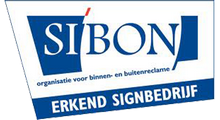Nsw Fair Work Agreements
NSW Fair Work Agreements: Understanding Your Workplace Rights
As an employee, it`s essential to know your rights in the workplace. In NSW, the Fair Work Act provides a framework for the minimum terms and conditions of employment, such as pay rates, working hours, leave entitlements, and workplace health and safety. However, sometimes, an employer and employee may agree on different terms of employment, known as a Fair Work Agreement.
What are Fair Work Agreements?
A Fair Work Agreement (FWA) is a written agreement between an employer and employee that sets out the terms and conditions of employment that suit both parties better than the general industry award. An FWA can take the form of an Enterprise Agreement, which covers a particular business, or a Individual Flexibility Agreement (IFA), which applies to an individual employee.
Enterprise Agreements
An Enterprise Agreement (EA) can be useful for businesses that have unique circumstances, such as a natural seasonal peak in demand or providing additional benefits or protections to employees. An EA must be approved by the Fair Work Commission and must pass certain legal criteria, such as fulfilling the Better Off Overall Test (BOOT). The BOOT requires that the employees covered by the EA are better off overall than they would be under the relevant industry award.
IFAs
An Individual Flexibility Agreement (IFA) allows an employee to negotiate certain terms and conditions of their employment that complement the award or Enterprise Agreement. An IFA must be in writing and signed by both the employer and the employee.
An IFA cannot require an employee to give up their minimum entitlements under the award, such as the National Employment Standards (NES). The NES provides minimum entitlements such as annual leave, personal leave, parental leave and notice of termination.
Benefits of Fair Work Agreements
FWAs can be beneficial to both employers and employees, as they can provide greater flexibility and certainty in the workplace. For example, an EA could provide for higher pay rates than the relevant industry award in exchange for more flexible working arrangements or additional benefits like extra leave or training.
An IFA could enable an employee to negotiate a different start and finish time that better suits their personal circumstances, provided it doesn`t negatively impact their pay or other entitlements.
FWAs can also help reduce disputes and create a positive workplace culture by encouraging open communication between employers and employees.
Conclusion
If you`re considering entering into a Fair Work Agreement with your employer, it`s essential to understand your rights and obligations. Make sure you read and understand the agreement before signing it, and seek advice from a lawyer or union representative if necessary.
FWAs can be a useful way to achieve better workplace flexibility and conditions that suit everyone. Still, it`s important to ensure they fulfill the legal requirements and provide better overall outcomes for employees than the industry award.

